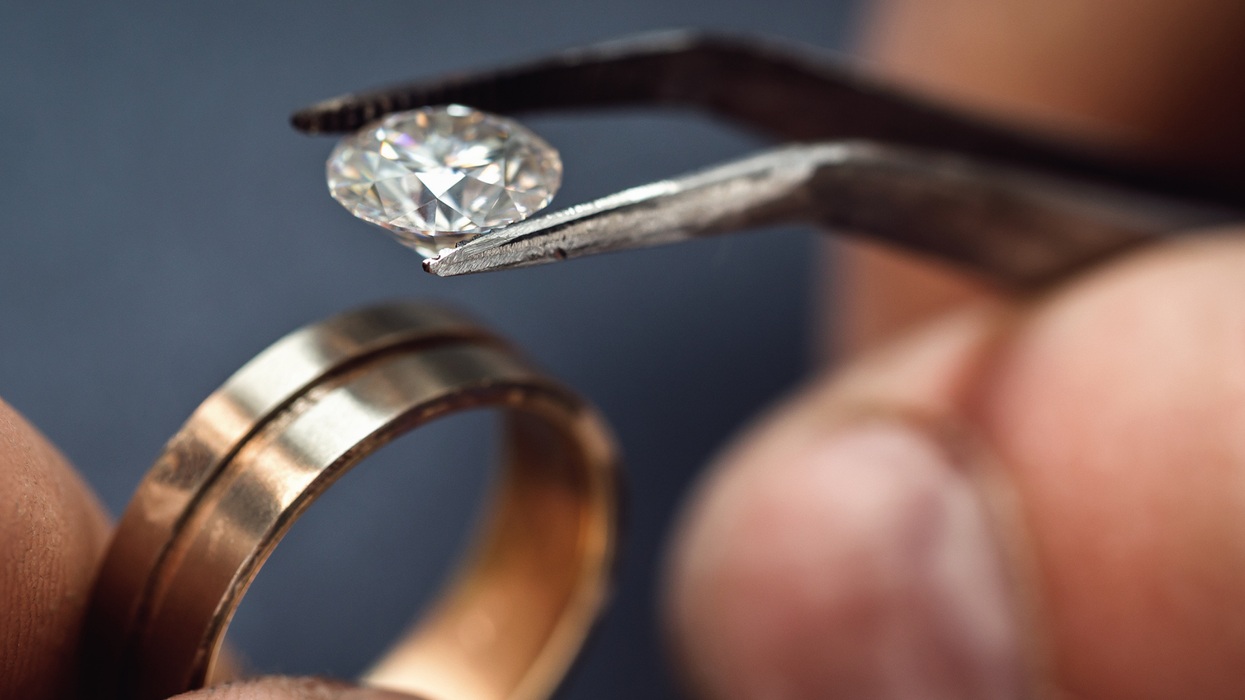News
Moya Lothian-McLean
Sep 10, 2020

iStock
How should we honour the dead?
Especially when the dead are Black victims of police brutality?
The answer is probably not: name pieces in an expensive jewellery line after them.
But that’s exactly what’s led Charleston’s Gibbes Museum of Art to pull a collection of jewellery that it planned to sell, after backlash accused the creators of “capitalising from police brutality”.
just when we thought it couldn’t get ANY worse... https://t.co/iGm7423PeI— soph 🍜 (@soph 🍜) 1599568540
Designed by Charleston couple Paul Chelmis and Jing Wen, the line was titled “Wear Their Names” and featured earrings, necklaces and bracelets made, in part, from shattered glass broken during Black Lives Matter protests.
Items in the collection were named in honour of victims of police brutality, with necklaces bearing names like ‘The Breonna’ and ‘The Elijah’ after Breonna Taylor and Elijah McLean.
Pieces were priced from $45 (‘The Tamir’) to $480 (‘The Elijah’) with profits going to charitable organisation From Privilege to Progress.
The line was cancelled by the museum before it ever reached social media after an article in the Charleston Post and Courier led to Tamika Gadsden of the Charleston Activist Network denouncing the collection, saying that: “even though proceeds [were] being donated to a worthy cause, the jewelleryline [commodified] Black trauma and pain”.
The Gibbes Museum quickly backtracked, releasing a statement saying:
In light of recent discussions, The Gibbes Museum Store is halting the upcoming sale of Shan Shui’s ‘Wear Their Names’ jewelry line.
The feedback we received from our community was enlightening and appreciated. It has also deepened our perspective in regards to future store merchandise.
We apologize to anyone who was hurt by this and will continue to listen and learn from our community.”
But it was too late; the controversial line of jewellery was spotted and posted online by a shocked social media user.
And the reaction quickly confirmed the museum had made the right choice to pull the collection.
People were not happy at all.
The creators were accused of ‘capitalising on tragedy’.
what the fuck. they are putting a price tag on black lives and capitalizing on tragedy. these souls lost their live… https://t.co/IwljN9S9xe— marijuanamermaid (@marijuanamermaid) 1599676393
Some even compared it to ‘slave auctions’.
Others were concerned with how ‘art’ was being used to excuse commodification.
It sparked a discussion of how to depict tragedy through art.
It was universally agreed this was not a successful attempt.
the perfect photoset exemplifying the disgusting intersection of late-stage capitalism, neoliberalism, and the art… https://t.co/miEIpmq3pL— margot hubby (@margot hubby) 1599603627
People discussed what happens when capitalism meets ‘activism’.
And it turns out that, despite it all, people still have the capacity to be horribly surprised by how tone deaf the world can be.
This is a level of white nonsense that I can't even comprehend. https://t.co/OcKEpqk4OG— Travon Free (@Travon Free) 1599604516
Basically: don’t do this.
Please.
Top 100
The Conversation (0)
Sort by













